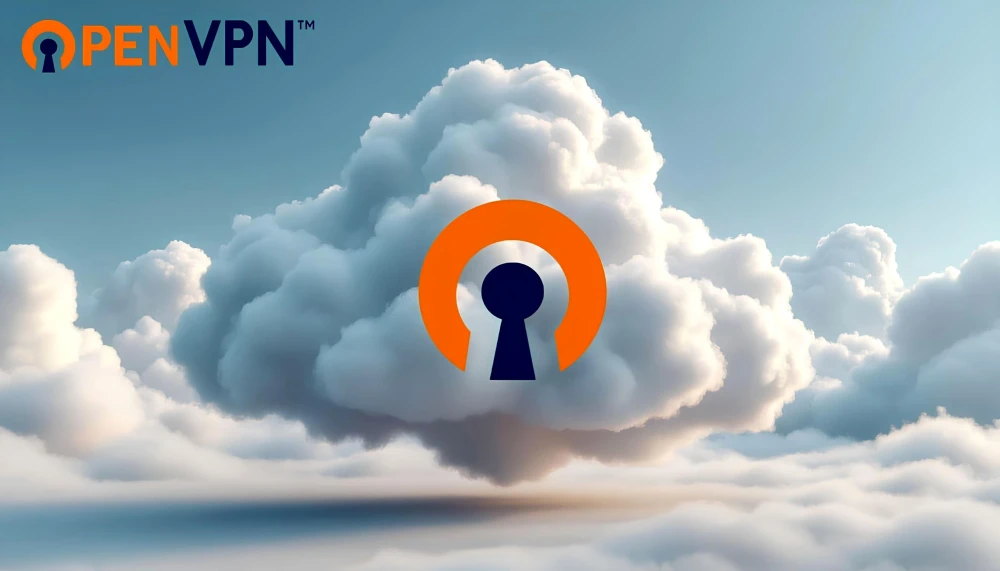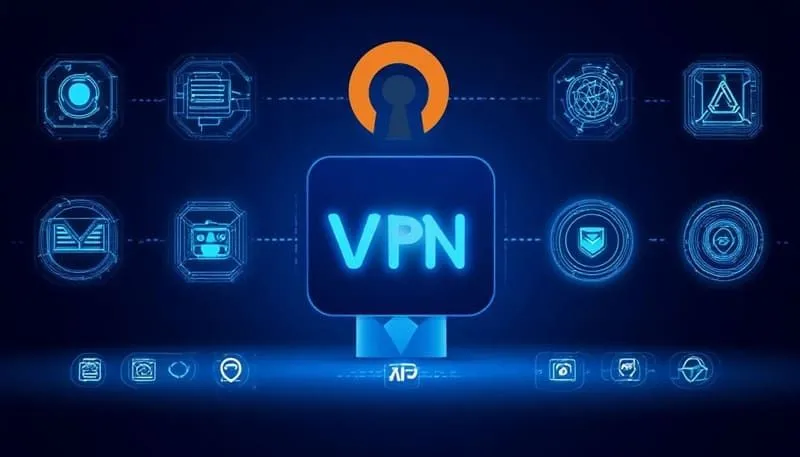OpenVPN explained: The complete protocol breakdown - security, pros and cons
14.09.2025

In today's digital world, personal data protection and online privacy are becoming increasingly crucial. With growing cyber threats and third-party intrusions, there's a rising need for reliable internet security solutions. OpenVPN has emerged as one of the most popular and flexible protocols for these purposes. This tool has gained widespread adoption among both individual users and corporate clients due to its reliability, flexibility, and strong traffic encryption.
In this comprehensive guide, we'll examine what OpenVPN is, its key features and benefits, how secure and reliable it is, its compliance with international data protection standards, along with common troubleshooting issues and future developments.
Historical background
The project began development in 2001 when James Yonan released its first stable version. The goal was to create a secure yet flexible tool for encrypting internet connections amid growing cyber threats.
From the outset, OpenVPN was built on the SSL/TLS protocol, distinguishing it from other VPN solutions. Its modular architecture and cross-platform compatibility - supporting Windows, macOS, Linux, Android and more - quickly made it popular among IT professionals, enterprises, and privacy-conscious users.
Over two decades, OpenVPN evolved from a simple tool to a full-fledged networking solution featuring end-to-end encryption, multi-factor authentication, and scalable configuration. The project maintains active community support and continues to develop through both OpenVPN Community Edition and commercial solutions.
Today, OpenVPN is considered a reliable alternative in information security, providing stable and adaptable data protection for network communications.
Key features of OpenVPN protocol
OpenVPN is an open-source software protocol designed to establish secure network connections between clients and servers across public networks. Unlike traditional VPN protocols like PPTP or L2TP/IPsec, OpenVPN stands out with its enhanced configuration flexibility, broad integration capabilities, and strong resistance to network restrictions and traffic filtering.
It utilizes standard OpenSSL-based encryption technologies, including support for AES-256 ciphers, TLS authentication, and digital certificates. OpenVPN can operate over both TCP and UDP, allowing users to optimize connections for either stability or speed.
Another key advantage is its multi-platform support - running on Windows, macOS, Linux, Android, iOS and even embedded devices. This makes it a universal solution for both personal and enterprise use.
Advantages
Configuration Flexibility
One of OpenVPN's greatest strengths is its high customizability. Users can fine-tune routing paths, ports, authentication methods and security protocols - particularly valuable for corporate requirements.
Cross-Platform Compatibility
OpenVPN works across all major operating systems. This means employees can securely connect to corporate networks from any device - ideal for remote work or business travel.
Reliability and Stability
Using modern encryption algorithms with robust connection failover protection, OpenVPN delivers reliable performance even with poor network conditions.
Modern Security Standards
OpenVPN supports cutting-edge protection technologies including Perfect Forward Secrecy, HMAC and TLS encryption, making it one of the most secure protocols in its class.
OpenVPN security: How reliable is it?
Security is a primary factor when choosing OpenVPN. The protocol implements proven cryptographic technologies that guarantee protection against data interception and analysis.
Let's examine its security features:
Encryption Methods
OpenVPN uses AES-256 encryption - a globally recognized standard considered among the most secure, even used by government agencies.
Authentication
It employs TLS verification with optional two-factor authentication, significantly reducing unauthorized access risks.
Attack Prevention
OpenVPN can defend against common threats including Man-in-the-Middle attacks, DNS leaks and brute force attempts. The certificate and key-based system makes it extremely difficult for attackers to compromise user data.

Pros and cons of using OpenVPN
Advantages:
- Enterprise-grade security
- Highly customizable configuration
- Multi-platform support
- Resistant to network restrictions
- Active development and updates
Disadvantages:
- Steeper learning curve for beginners
- May require additional software for setup
- More resource-intensive than simpler protocols
However, the advantages significantly outweigh potential drawbacks, especially when protecting sensitive information.
How OpenVPN helps meet GDPR/HIPAA compliance
Modern data protection regulations like GDPR (General Data Protection Regulation in EU) and HIPAA (Health Insurance Portability and Accountability Act in US) require companies to implement robust information security measures.
OpenVPN effectively addresses these requirements through:
- Traffic Encryption: All VPN tunnel data is encrypted, preventing unauthorized access
- Access Logs: Activity monitoring helps companies track user actions and respond to incidents
- Access Control: Configurations can restrict access to authorized users only
- Permission Management: Crucial for healthcare and legal sectors handling sensitive personal data
These capabilities make OpenVPN a reliable tool for meeting international compliance standards.
OpenVPN connection issues: 10 troubleshooting steps
- Verify your username and password are entered correctly
- Check your internet connection stability
- Review firewall settings that might be blocking the connection
- Try switching between TCP and UDP protocols
- Update to the latest OpenVPN client version
- Inspect configuration files for errors
- Run the client as administrator (particularly on Windows)
- Check routing table settings for incorrect routes
- Restart the OpenVPN service
- Contact your VPN provider if issues persist
The future of OpenVPN: protocol development
OpenVPN continues active development, with each update bringing performance, security and usability improvements. The introduction of OpenVPN 3 and OpenVPN Cloud indicates a strategic shift toward cloud integration and enhanced business solutions.
With growing adoption of Zero Trust architecture and distributed corporate networks, OpenVPN is poised to become even more essential for providing reliable, scalable security.
We're also seeing trends toward management automation, easier CI/CD pipeline integration, and more user-friendly interfaces - making OpenVPN accessible beyond IT administrators to general users.
Conclusion
OpenVPN remains a powerful, reliable solution for creating secure network connections. Its open architecture, flexible configuration options and strong security make it suitable for both personal and business applications.
The protocol meets international data protection requirements, resists most cyber threats, and continues to evolve. Despite requiring some technical knowledge for setup, OpenVPN remains a preferred choice among security professionals.
Implementing OpenVPN is a decisive step toward protecting your data and ensuring stable operations in the digital space.